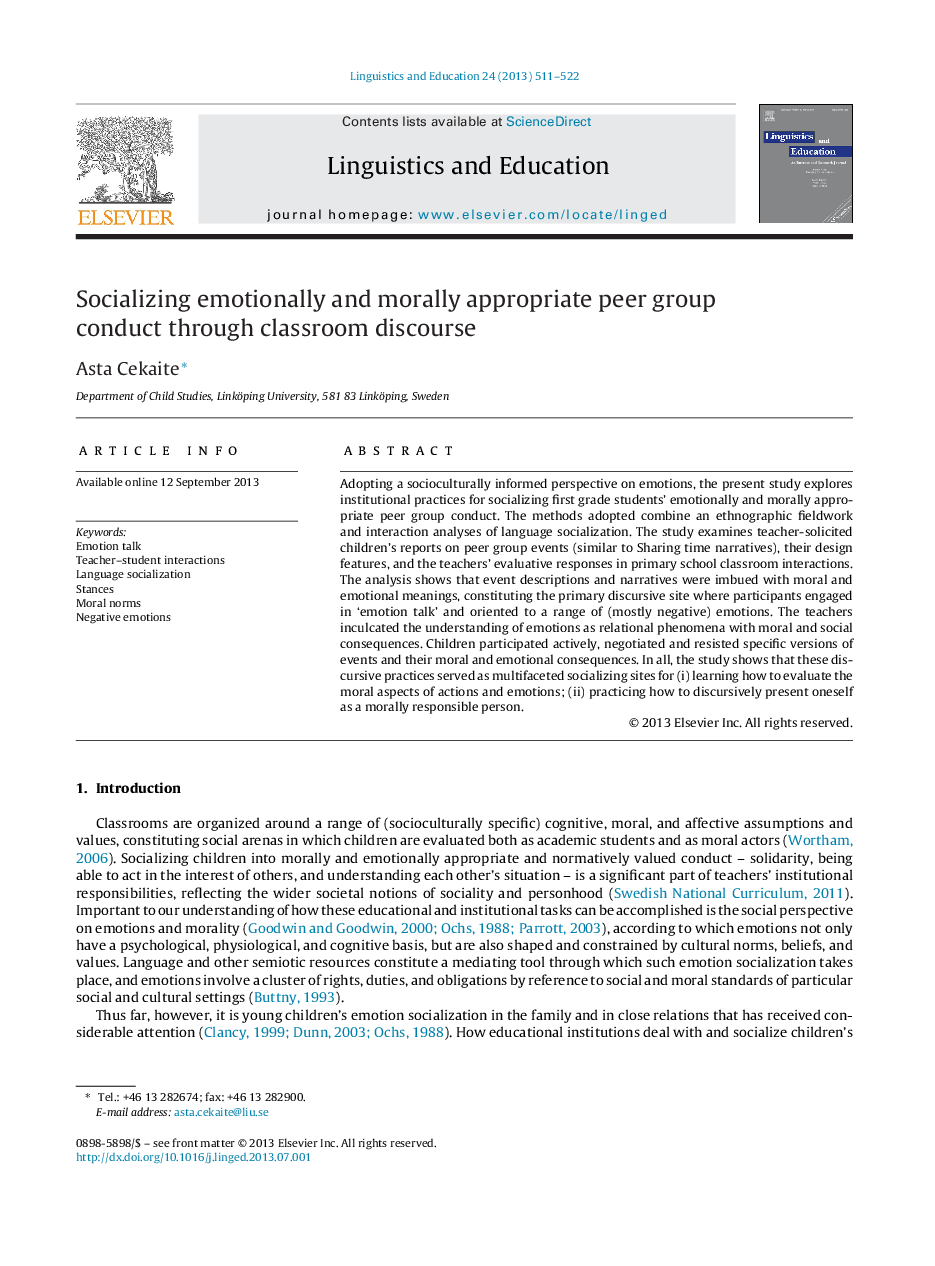| Article ID | Journal | Published Year | Pages | File Type |
|---|---|---|---|---|
| 10315878 | Linguistics and Education | 2013 | 12 Pages |
Abstract
Adopting a socioculturally informed perspective on emotions, the present study explores institutional practices for socializing first grade students' emotionally and morally appropriate peer group conduct. The methods adopted combine an ethnographic fieldwork and interaction analyses of language socialization. The study examines teacher-solicited children's reports on peer group events (similar to Sharing time narratives), their design features, and the teachers' evaluative responses in primary school classroom interactions. The analysis shows that event descriptions and narratives were imbued with moral and emotional meanings, constituting the primary discursive site where participants engaged in 'emotion talk' and oriented to a range of (mostly negative) emotions. The teachers inculcated the understanding of emotions as relational phenomena with moral and social consequences. Children participated actively, negotiated and resisted specific versions of events and their moral and emotional consequences. In all, the study shows that these discursive practices served as multifaceted socializing sites for (i) learning how to evaluate the moral aspects of actions and emotions; (ii) practicing how to discursively present oneself as a morally responsible person.
Related Topics
Social Sciences and Humanities
Arts and Humanities
Language and Linguistics
Authors
Asta Cekaite,
